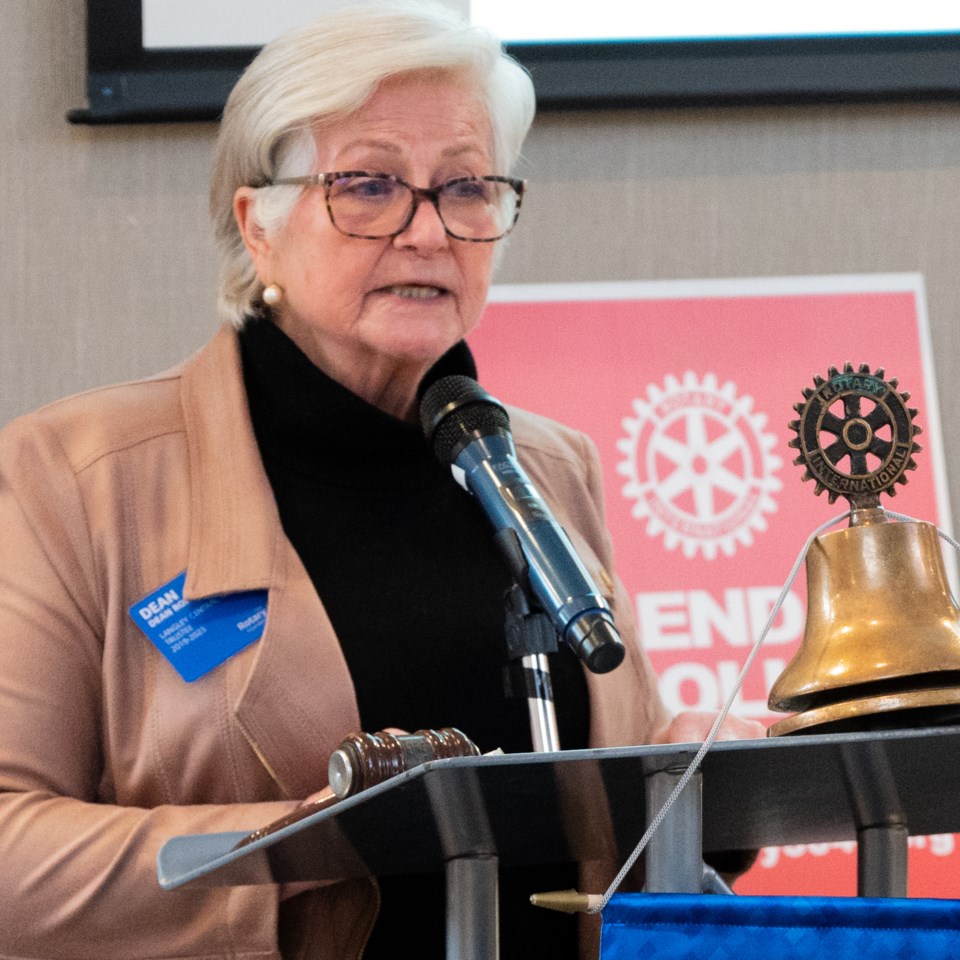Two. That’s the number of polio cases reported this year so far from around the world. From 350,000 cases of polio in 125 countries in 1988 the two latest cases come from reports of one each in Afghanistan and Pakistan.
President of The Rotary Foundation Canada and international trustee of The Rotary Foundation Dean Rohrs spoke to the Rotary Club of Ladner on Oct. 19 about Rotary’s original aspiration and to this day, “Our Dream of a Polio Free World.”
“There are now 19.4 million people in the world, who would otherwise have been paralyzed by the poliovirus, walking and living fully productive lives because of the Global Polio Eradication Initiative,” Rohrs said.
The campaign to rid the world of polio Rotary initiated 33 years ago has, since then, developed into the Global Polio Eradication Initiative involving many billions of dollars, foundations and governments and countless aid workers. In that time, through its PolioPlus program, Rotary alone has invested more than US$2.2 billion from its members and their supportive communities.
The results of all that work are clear, including Africa’s being declared polio free in August 2020. While that achievement is both impressive and heartening, there is still much more to do and billions of dollars required.
“Now is not the time to become complacent but rather to redouble our efforts to avoid an increase in cases as we saw in 2019 and 2020,” says Rohrs. “We must build on the progress being made with a strong effort to reach those children who are missed with the polio vaccine due to conflict, because they live in remote areas, or are nomadic.”
Reaching up to 400 million children per year with vaccinations, to sustain high levels of immunity, continues to be the strategy.
“That requires hundreds of thousands of front-line workers going door-to-door, house-to-house, market-to-market looking for all children under the age of five to vaccinate multiple times per year,” she said. “Disease surveillance is also required to detect the virus in children and the environment as the poliovirus can live for a short period of time in sewage water, as well as to determine when poliovirus circulation has stopped.”
Rotary is once again aiming to generate US$50 million through fundraising so that the Bill and Melinda Gates Foundation can match that 2:1, as it has in recent years, for an annual contribution of US$150 million. Rotary clubs around the world are asked to contribute an average of US$1500.
Rohrs, formerly of West Vancouver and now of Langley, previously served as vice-president of the 2.4-million-member global Rotary network and as director for the Rotary Zone, of Canada, Northeastern United States, Alaska and parts of eastern Russia. Earlier she was Governor of Rotary clubs in Metro Vancouver up the coast to Prince Rupert.
Rohrs, originally from South Africa, was an operating room nurse for the team of Dr. Christiaan Barnard, who performed the world’s first heart transplant team. She also ran a nursery school in Malawi. She and her husband, Rhino, also from Southern Africa, own and manage a Langley-based company involved in soil stabilization during road construction.




